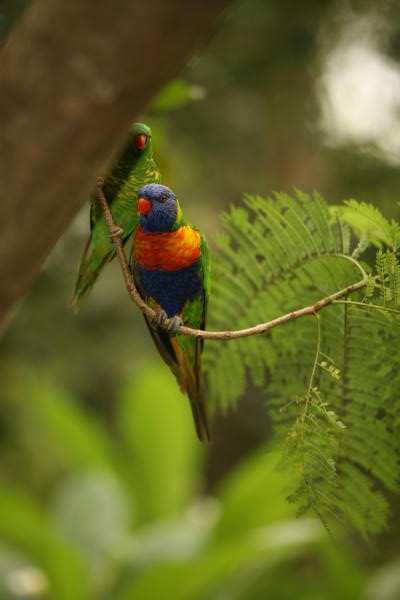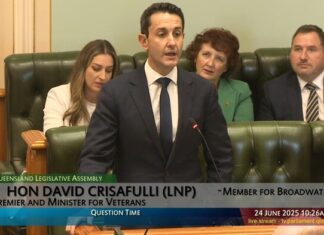The University of Sydney has called on wildlife rescue group, WILVOS to help them find out what is causing an illness that is paralysing rainbow lorikeets across south east Queensland including Noosa and north east New South Wales.
Wilvos president Sylvia Whiting said the group had cared for lorikeets with the Lorikeet Paralysis Syndrome (LPS) for a few years but last year was the worst with birds being brought to them “in their dozens“.She said they hadn’t received any affected lorikeets so far this year but in previous years they had been affected toward the end of the year.
Sylvia said their wildlife carers have had to look after the birds in an intensive care-like situation with the affected birds unable to help themselves.
“Their legs just sit behind them. They can’t move them at all. They can’t lift their heads. They can swallow“ she said.
Sylvia said the birds have to be hand fed, positioned safely and cleaned, and given pain relief.
After a few days they begin to regain movement and within 10 days to two weeks they return to normal, she said.
“They usually come good,“ she said.
Some birds, sadly, that were not brought into care soon enough, had become weakened, the illness had affected their organs and they had to be euthanised.
The university has created a citizen science project on iNaturalist and is asking people to help in identifying the cause of LPS that is bringing thousands of rainbow lorikeets into care each year. As the result of their recent studies, they are exploring the possibility that LPS may be caused by the ingestion of a toxic plant that occurs in southern QLD and northern NSW.
Using iNaturalist participants within the study area are being asked to report on what plant species/food sources the rainbow lorikeets are observed feeding on to help them to identify what plants or other food sources researchers should sample and test in further studies.
More information on the research can be found at sydney.edu.au/science/our-research/research-areas/veterinary-science/lorikeet-paralysis-syndrome-project.html
The link to the LPS project on iNaturalist is at inaturalist.org/projects/lorikeet-paralysis-syndrome-project








